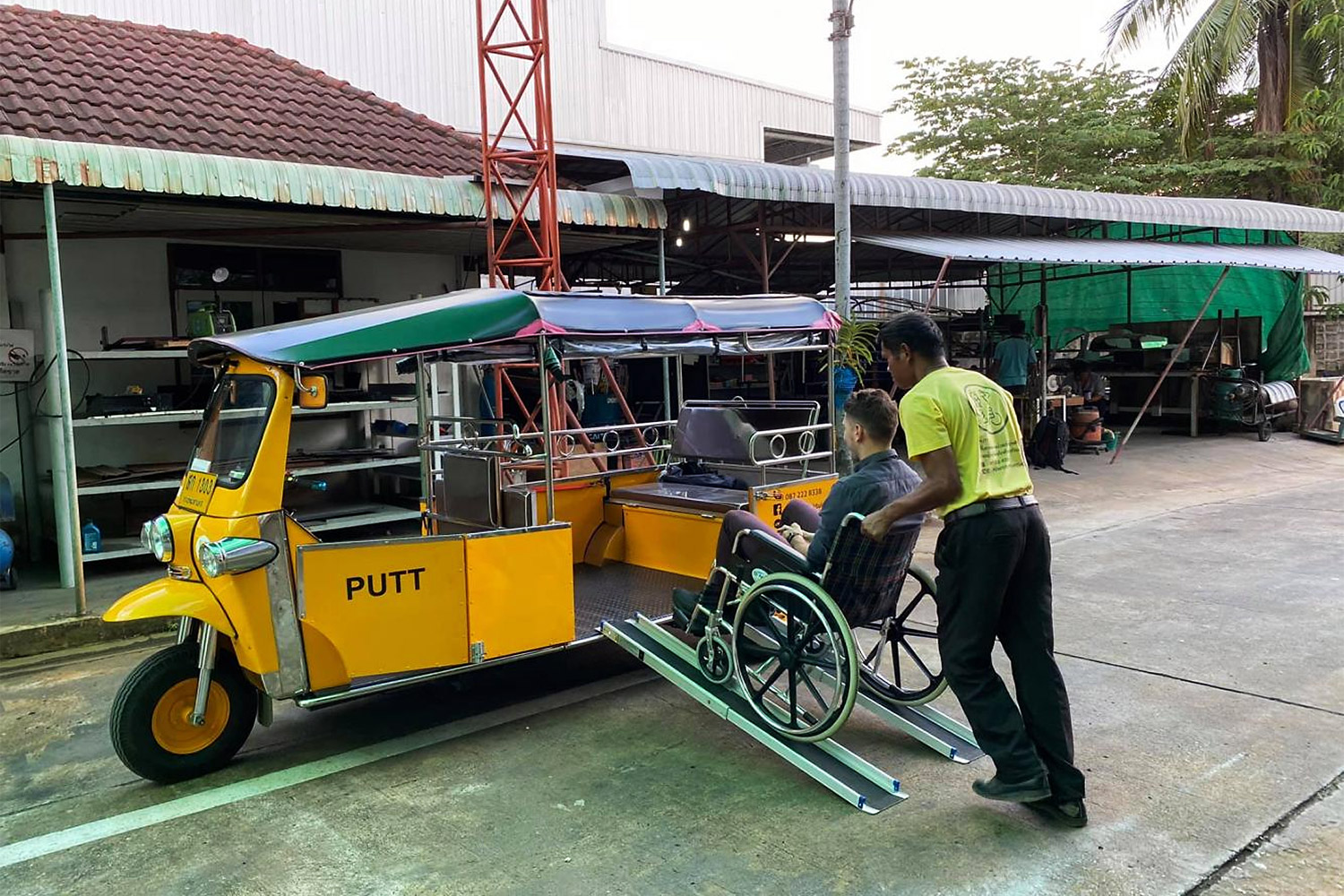
Startups venturing into electric vehicle (EV) businesses expect to see rapid post-pandemic growth of the industry, with more charging facilities and EV-sharing service platforms to serve new urban lifestyles.
As the world is alert to more serious efforts to cope with global warming, caused by greenhouse gases particularly from the transport sector, the age of battery-run vehicles, which emit zero carbon dioxide and other pollutants, is set to soon become a reality.
Over the next three years, the global automotive industry will be part of significant changes towards more sustainable and environmentally friendly development, a key component of the "Great Reset" coined by the World Economic Forum, said Soranun Choochut, co-founder and chief executive of Etran (Thailand) Co, a Bangkok-based electric motorcycle developer.
The Covid-19 pandemic, which has made people more aware of healthcare, has also fuelled the changes, he said.
More than 10 years ago countries witnessed a transition into a digital era, and now they are heading towards a period of cleaner energy and more environmentally friendly products, including EVs, he said.
"EVs may still be perceived as new alternative cars in the Thai market, but we want oil-powered car drivers to start thinking of EV capabilities and making themselves familiar with the technology," Mr Soranun told the Asean Sustainable Energy Forum, which was recently joined by EV startups.
The age of EVs will eventually come as the Thai government is determined to promote the cars, while many power and car companies have embarked on EV businesses.
The National EV Policy Committee earlier this year announced a goal to have EVs comprise 50% of vehicles made locally by 2030, part of an ambitious plan to make Thailand a regional EV production hub.
Companies have also announced progress in developing battery production facilities and a range of EVs, from buses and boats to tuk-tuk three-wheel vehicles.
SHARING WITH EVS
Car-sharing services are expected to see a significant growth, providing an opportunity for EV business developers, said Krit Vichaiwatanapanich, co-founder and chief executive of Haupcar Co, the operator of a digital EV-sharing service platform.
The service will satisfy many salarymen in cities as they do not want to shoulder the financial burdens of car purchases and deal with the struggle to find parking spaces, which are limited in many venues, including newly-built condominiums.
Mr Krit expects EVs to be an eye-catching choice in the car-sharing market as the automotive industry will produce more EVs in line with global campaigns against climate change caused by global warming.
His firm has developed an app to facilitate people who want to use cars. With a few clicks they can book their favourite car models and select areas to receive and return cars after use.
Chayoot Sripian, founder and chief executive of Powerup Thailand Co, an electric tuk-tuk manufacturer, said his company decided to venture into a tuk-tuk-sharing service platform during lockdown.
Powerup redesigned a tuk-tuk, making it bigger to better transport bed-ridden patients, elderly and disabled people, as well as vendors with large amounts of goods.
Conventional tuk-tuks and taxis, with limited space, cannot do these jobs smoothly, he said.
He sees good business prospects in this service because the number of elderly people increases every year. At present, there are up to 7,000 nursing homes for the elderly and the numbers rise by about 100 annually, he said. Such people need to visit hospitals regularly for scheduled medical check-ups.
Supapong Kitiwattanasak, co-founder of Urban Mobility Tech Co (UMT), expects to see good business opportunities for electric tuk-tuks once Covid-19 subsides.
UMT joined hands with Banpu Next, a unit of non-oil energy conglomerate Banpu Group, to provide a MuvMi e-tuk-tuk service, facilitating Bangkokians travelling between mass transit train stations and minor roads in areas where songthaew passenger trucks and taxi motorcycles are not enough.
The two firms developed a ride-sharing system that lets passengers travelling in the same areas to be grouped together.
CHARGING UP TRAVEL
EV charging facilities are also expected to increase as firms are eager to add new charging outlets to better serve motorists.
Poonpat Loharjun, founder and chief executive of Evolt Technology Co, said his company plans to increase the number of chargers to up to 300 units by 2023 to serve growing demand.
As well, renewable energy and EV developer Energy Absolute Plc announced an ambitious plan to increase its EV charging outlets to 1,000 by the end of this year.